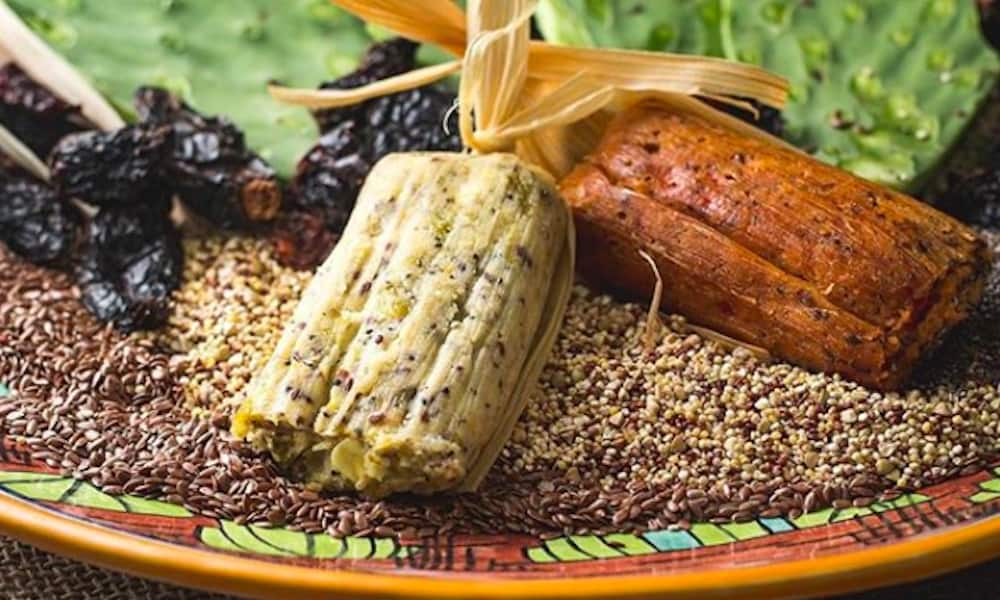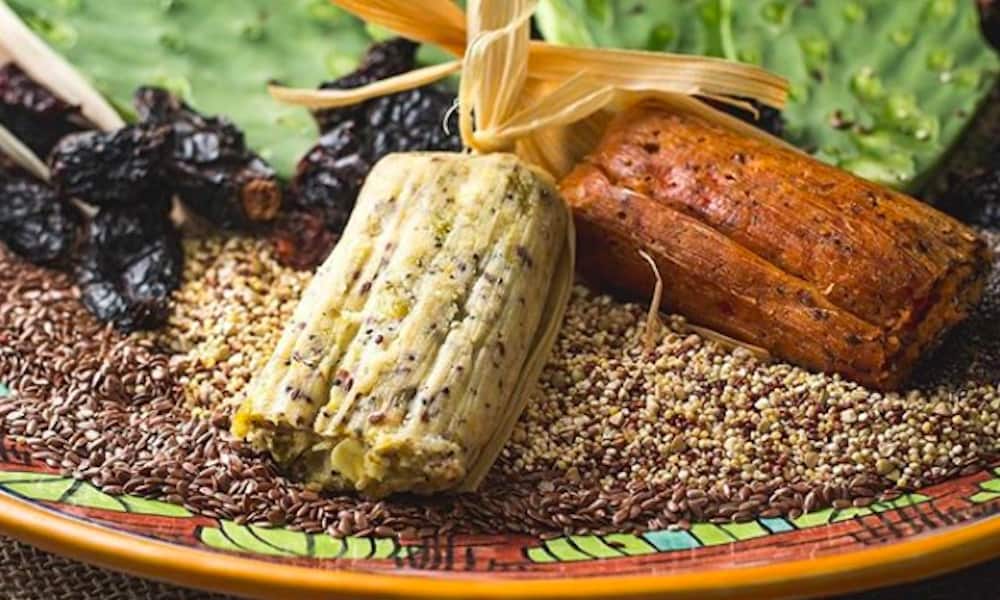
In the flush of federal hemp legalization, the Flores family turned to the hemp seed—a plant-based source of omega 3’s, omega 6’s, essential fatty acids, polyunsaturated fatty acids, iron, vitamin E, and amino acids. Why not, they thought, nutritionally beef up masa with it? In quick order, the Flores family had developed a hemp seed pizza crust and two kinds of tamales. Last July, they began to sell the products at three locations of their Tucson restaurant chain El Charro Café, eventually developing their retail line Hola Hemp.
Photos of the tamal, paired with a hearty salsa verde and side salad, dotted with cilantro leaves, were social media worthy. But the dish was halted in its quest to break the internet.
Last week, Facebook—repeatedly—declined to host the Flores’ ads alerting the neighbors to the existence of Hola Hemp.
The Arizona Daily Star reports that Raul Flores contacted the publication after spending “all weekend” trying to get in contact with technical support, or anyone at the company who still needed an update on federal hemp policy, on the rejection of his ad.
“For some reason, Facebook is very behind the times or sadly misinformed,” Flores commented. “You can get a Facebook page for hate group or to manipulate elections … but they are not allowing us to do a boost for Hola Hemp and their argument is that we are promoting a controlled substance.” Facebook had not responded to the Star’s request for comment either at the time of its article’s publication.
In October, ahead of Canada’s then-pending federal legalization, Facebook announced that it would be changing its policies on cannabis on the site. “When searching ‘cannabis’ or ‘marijuana,’ pages that have been verified for authenticity will now be included in search results,” a spokesperson commented to MarketWatch at the time.
Facebook continues to report black market cannabis sales to law enforcement and the site’s relationship to the cannabis industry continues to be largely hands-off when it comes to Canadian and US State-legal advertisements. The company points to its policy on recreational drugs as explanation, rather than state or federal prohibition on cannabis use. The company is joined by other social media companies like Google and Twitter in this no-cannabis-ad stance, though sites like Pinterest have policies that explicitly state CBD and hemp products may be promoted on the site.
Over-the-counter drugs and alcohol are present on Facebook, which places the responsibility for legal compliance on booze on companies and distributors, who are able to target their ads based on geographic area and user age group; “Make sure to follow local laws and target your ads appropriately”, reads the company’s policy on alcohol advertisements.
Hemp, however, is hardly a recreational drug. In addition to becoming a legal, if tightly regulated crop with the passage of the new US Farm Bill in December, it is decidedly non-psychoactive and often lauded for its high nutritional value. Current clinical trials are investigating its effects on hypertension or high blood pressure.
So why isn’t the Hola Hemp tamale on Facebook’s menu?











